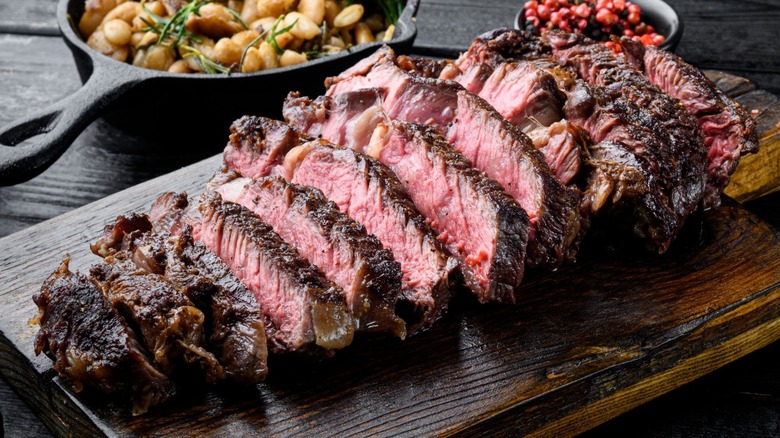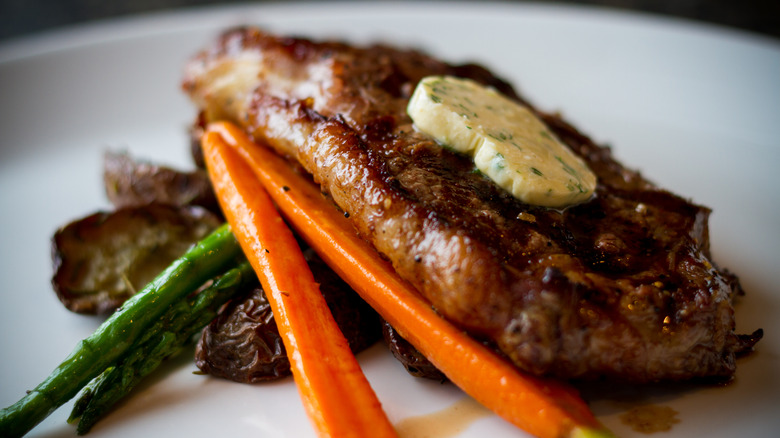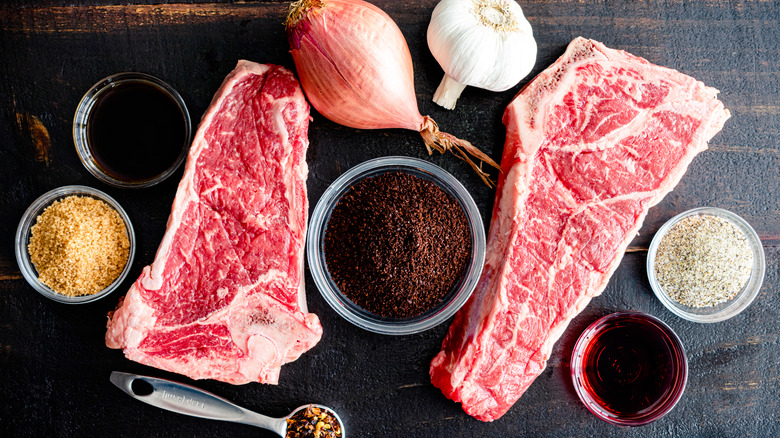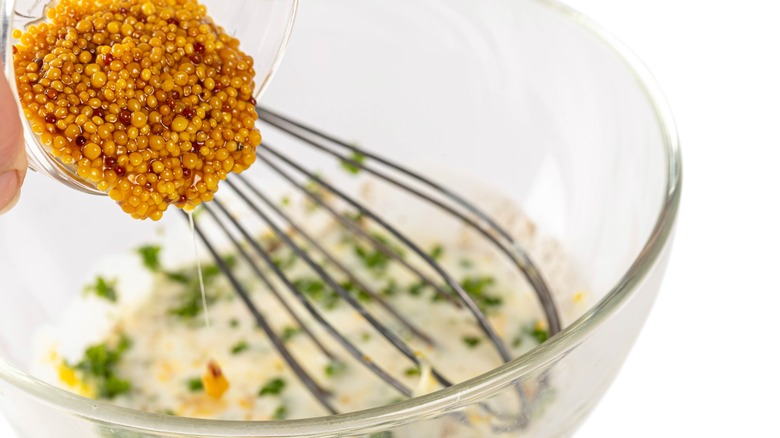The One Ingredient You Need To Take Your Steak To The Next Level
Most carnivores probably have steak recipes they swear by. But what's the secret ingredient that's the true game-changer? What's the trick that clears the playing field of all other culinary contributions and takes your steak-making to the next level?
Is it the seasoning? Steak won't sear properly without salt, for instance. Is the secret the pungent and aromatic flavors of rosemary basting in butter, or is it brushing the steak with garlic when you flip it on the grill or stove?
The Chicago Steak Company say that a marinade is essential for the tenderizing and flavoring of steaks. So, is it the fruit juice in your favorite marinade recipe, or maybe the addition of chili flakes, brown sugar, pepper, and fresh thyme that make your beef unforgettable? If you've already mastered the marinade and always season your steak with kosher salt, there's another ingredient you might not have tried yet.
Cooking steak in lard
While sunflower, olive oil, and butter are all common in steak recipes, lard was also quite popular in the 19th century, per National Today.
As fate would have it, the development of cotton seed oils put a bad light on pork fat, per Live Science. Near the end of the 20th century, America and Europe migrated away from using lard in favor of plant-based oils, as they were cheaper and considered healthier. But lard might be making a comeback, per Food Dive.
According to The Star, lard has half the saturated fat that butter does. It's also rich in vitamin D, and its health benefits are increased if the animals it comes from are pastured and grass-fed, per Dr. Kiltz. As for flavor, that's dependent on the quality of lard you buy, say Cooks Illustrated; lard can have a neutral flavor or a natural, meaty taste.
Making a coffee rub for steak
Using lard isn't the only steak-cooking trick you might want to test out. The robust flavors of a full-roast coffee bean, combined with a tender steak, may be just the twist you need, per Best Beef Recipes. According to The Guardian, used coffee beans will suffice for your steak recipes, working as an ingredient in a dry rub or marinade.
The rub need not be a complicated recipe, either. Per Food Network, one needs only to add whole coffee beans and peppercorns to a (pepper) grinder. After patting steaks dry with a kitchen towel and salting them liberally, apply the pepper-coffee mixture with a heavy hand.
The other way of making a coffee rub for your steak is with garlic, thyme, pepper, and molasses (in addition to the aforementioned salt, pepper, and coffee), with balsamic vinegar and dijon mustard for the liquid component. According to Snappy Gourmet, this combination works as a marinade, and the coffee helps to tenderize the meat.
Coffee doesn't just influence the steak's flavor, either. It also performs a similar function to wine by tenderizing it and breaking down its proteins. When a thick enough layer of the dry rub is applied, the mixture will form a crust as the meat grills, allowing the steak to inhibit its moisture, per Prairie Farmer.
Marinating with yogurt
Yogurt is often featured in recipes for dishes such as chicken tikka, falafel, and kebab, per Popular Science. But its usefulness can extend to other meat-centric dishes, including marinated steak, as well.
When it comes to marinating meat, home cooks walk a fine line. If you add too much of an ingredient or leave the meat in the sauce for too long, it can toughen, especially when vinegar and citrus fruits are involved, according to food blogger Jessica Gavin. Yogurt, however, has a different effect. Marinating your steak (or poultry, or pork) in yogurt will tenderize the meat, and you won't have to worry about it becoming tough.
So, how does yogurt work as an ingredient in meat marinades, exactly? The calcium and lactic acid work away at the meat, making it tender without the risk of it becoming rubbery, explains Popular Science. The active acids in this process are more delicate, as the marinade works slower and needs to soak for as long as 12 hours to achieve the desired results, per Bon Appétit. Not only does the yogurt make steaks softer, but it also makes them more succulent, per Epicurious. If you don't have lard on hand or you just want to try out a new sauce recipe for your steak, Greek yogurt could be the ingredient you didn't know you needed.



